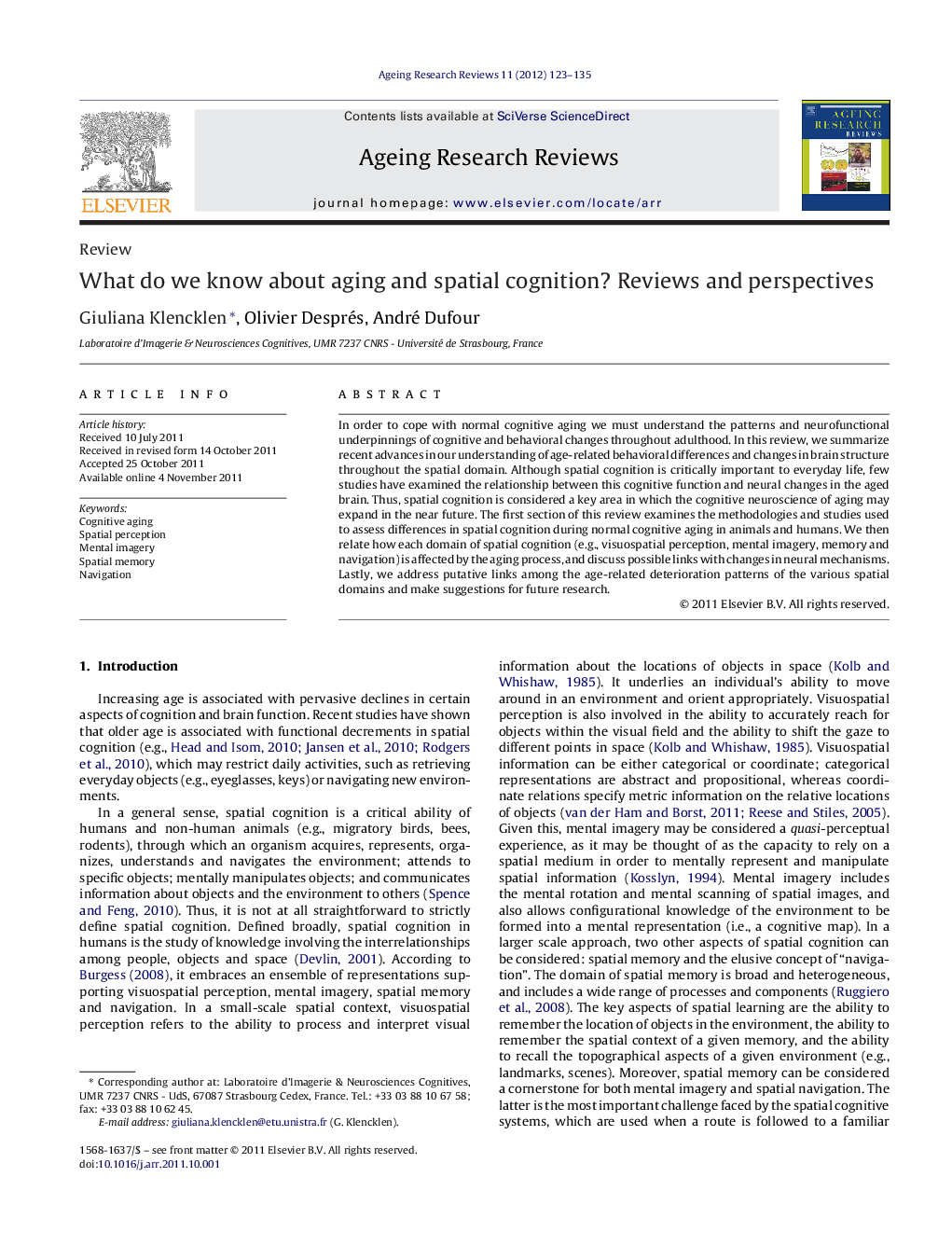| Article ID | Journal | Published Year | Pages | File Type |
|---|---|---|---|---|
| 1902330 | Ageing Research Reviews | 2012 | 13 Pages |
In order to cope with normal cognitive aging we must understand the patterns and neurofunctional underpinnings of cognitive and behavioral changes throughout adulthood. In this review, we summarize recent advances in our understanding of age-related behavioral differences and changes in brain structure throughout the spatial domain. Although spatial cognition is critically important to everyday life, few studies have examined the relationship between this cognitive function and neural changes in the aged brain. Thus, spatial cognition is considered a key area in which the cognitive neuroscience of aging may expand in the near future. The first section of this review examines the methodologies and studies used to assess differences in spatial cognition during normal cognitive aging in animals and humans. We then relate how each domain of spatial cognition (e.g., visuospatial perception, mental imagery, memory and navigation) is affected by the aging process, and discuss possible links with changes in neural mechanisms. Lastly, we address putative links among the age-related deterioration patterns of the various spatial domains and make suggestions for future research.
► Visuospatial perception, image maintenance and image scanning are relatively well preserved with age. ► Image generation, rotation and metric properties processing are impaired with age. ► The elderly perform more poorly than younger subjects in only a part of the components of spatial memory. ► The elderly perform more poorly than younger subjects in spatial navigation tasks. ► Spatial cognition is underpinned by brain structures that are particularly vulnerable to normal cerebral aging.
